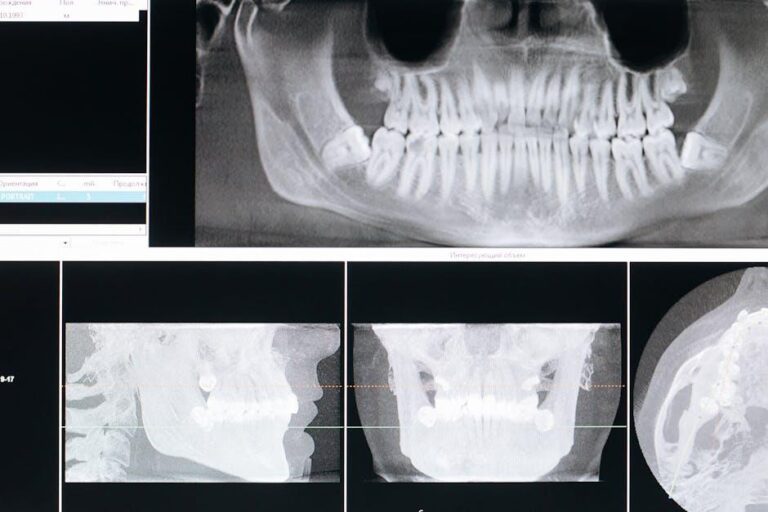
Poor Oral Health Potentially Linked To Chronic Health Problems – U.S. News & World Report
Oral health isn’t just about having a bright smile or fresh breath; it plays a critical role in our overall health and well-being. Recent coverage by U.S. News & World Report highlights compelling research indicating a significant link between poor oral health and a range of chronic health problems. Understanding this connection can empower us to take better care of our teeth and gums, potentially preventing serious systemic diseases down the road.
The Intricate Link Between Oral Health and Chronic Diseases
Experts reveal that the bacteria responsible for oral infections and inflammation do not just stay confined to the mouth. They can travel through the bloodstream, triggering or exacerbating chronic conditions such as cardiovascular disease, diabetes, respiratory infections, and even some neurodegenerative diseases.
Key Chronic Health Problems Connected to Poor Oral Health
- Heart Disease: Inflammation caused by gum disease (periodontitis) may increase the risk of heart attacks and stroke.
- Diabetes: Poor oral health can worsen blood sugar control, complicating diabetes management.
- Respiratory Issues: Harmful bacteria from the mouth can be inhaled into the lungs, leading to pneumonia and chronic obstructive pulmonary disease (COPD).
- Adverse Pregnancy Outcomes: Gum disease has been linked to premature birth and low birth weight.
- Alzheimer’s Disease: Some studies suggest that oral bacteria may contribute to cognitive decline.
How Oral Health Impacts Systemic Inflammation
Chronic inflammation is a common thread running through many systemic diseases. The mouth is a hotspot for bacteria, and when gum disease occurs, the gums become inflamed. This inflammatory state spills over into the bloodstream, affecting the entire body and potentially worsening conditions like arthritis and heart disease.
Inflammation Markers Associated with Poor Oral Health
| Marker | Role in Systemic Disease | Relation to Oral Health |
|---|---|---|
| C-Reactive Protein (CRP) | Indicator of inflammation; elevated in heart disease risk | Increased by gum inflammation and periodontal disease |
| Interleukin-6 (IL-6) | Promotes inflammation; linked to diabetes complications | Elevated in patients with poor oral hygiene |
| Fibrinogen | Involved in blood clotting; raises cardiovascular risks | Higher levels found in periodontal disease patients |
Practical Tips for Maintaining Healthy Oral Hygiene and Preventing Chronic Issues
Fortunately, caring for your mouth can be straightforward and immensely effective in reducing systemic health risks. Here are some easy-to-adopt tips:
- Brush Twice Daily: Use a fluoride toothpaste and brush for two minutes each time.
- Floss Daily: Removes plaque and food particles between teeth where a toothbrush can’t reach.
- Regular Dental Visits: Schedule checkups and cleanings at least twice a year.
- Healthy Diet: Limit sugary and acidic foods that contribute to tooth decay and gum disease.
- Quit Smoking: Tobacco use significantly increases the risk of gum disease and related systemic illnesses.
- Control Chronic Conditions: Manage diabetes and other health conditions with your healthcare provider’s guidance.
Case Study: How Improving Oral Health Reduced Cardiovascular Risk
One notable example comes from a study involving middle-aged adults diagnosed with moderate periodontal disease and risk factors for heart disease. Participants who committed to an intensive dental care plan—including mechanical cleaning, improved home care, and lifestyle changes—experienced a measurable reduction in systemic inflammation markers after six months, along with improved endothelial function (a predictor of cardiovascular health).
“Taking care of my gums was one of the best decisions I made for my heart health,” shared a participant, illustrating the potential benefits of integrating oral care into a holistic health approach.
Common Questions About Oral Health and Chronic Diseases
Can poor oral health cause chronic diseases?
While poor oral health is not the sole cause, it can significantly contribute to the development and progression of several chronic diseases by promoting systemic inflammation and bacterial spread.
Is gum disease reversible?
In its early stages (gingivitis), gum disease is reversible with proper oral hygiene. Advanced periodontal disease requires professional treatment to manage symptoms and prevent further damage.
Are electric toothbrushes better for oral health?
Electric toothbrushes can be more effective at removing plaque than manual brushing, but proper brushing technique and regular care are the keys to maintaining oral health.
Conclusion: The Smile-Health Connection You Can’t Afford to Ignore
Oral health is far more than a cosmetic concern — it is a cornerstone of your overall wellness. The emerging scientific evidence, highlighted by U.S. News & World Report, emphasizes that neglecting your teeth and gums may increase your risk for serious chronic health problems. By adopting simple but consistent dental care habits and prioritizing regular dental checkups, you can help safeguard your heart, lungs, and more.
Invest in your smile today—because good oral health potentially means a healthier life tomorrow.


